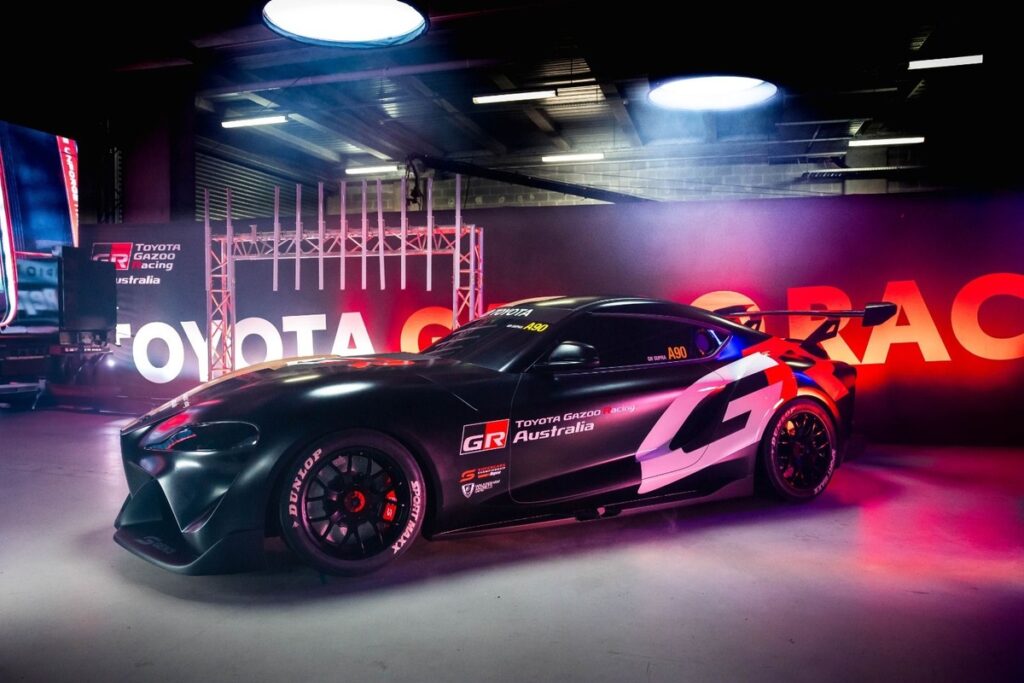A full-size clay model of the GEN3 GR Supra Supercar has provided fans with a preview of the four V8-powered cars that will take on the Chevrolet Camaros and Ford Mustangs.
The model is a derivative but not a copy of the two-seater coupe and has been built by the Melbourne-based Toyota Design Australia team.
Walkinshaw Andretti United, the homologation for the Toyota Supercars project that was announced last month, will race two of the cars in 2026, joined by another two Supras run by a yet-to-be-announced team.
“Taking part in the heat of Supercars, as well as other racing and rallying series around the world, provides technical learnings that can be transferred to the development of our entire range of vehicles – not just our sports cars,” said Toyota Australia’s Vice President Sales, Marketing and Franchise Operations Sean Hanley.
“We are looking forward to building on the passion among enthusiasts for our GR range and to generating interest and excitement among motorsport fans, including those who are new to our brand.
“We are also keen to involve our own people, enabling them to improve their skills and acquire new abilities in the high-pressure teamwork environment that is motorsport.
“The experience gained by our local designers, modellers and engineers with their stunning GR Supra Supercar is a perfect example of what motorsport can help us achieve.”
WAU, which switched allegiance from General Motors to Ford ahead of the 2023 season – having run for much of its life as the Holden Racing Team, will continue to run its Mustang Supercars program with Chaz Mostert and Ryan Wood while developing the new Toyota during 2025.
A model of the all-new GEN3 Toyota Supra
Photo by: Supercars
Toyota’s initial commitment to Supercars runs for five years to 2030 and development is already underway on an all-aluminium, quad-cam V8 based on the 2UR-GSE, rather than the in-line six-cylinder motor that comes fitted to the road-going Supra models.
With the Japanese manufacturer joining the grid, Supercars will expand beyond two manufacturers for the first time since 2019, when Nissan left the championship. This followed Volvo’s exit in 2017 and that of the customer Erebus Mercedes entry at the end of 2015.
Read the full article here

